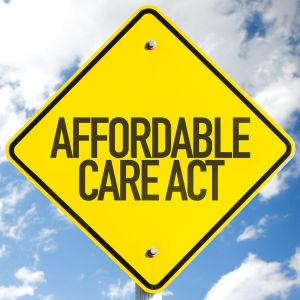Six provisions of the Affordable Care Act (ACA) should come up for target practice next week on the Capitol Hill shooting range. Included in a budget reconciliation measure before the House of Representatives are such items as repeal of the individual mandate, employer mandate, Independent Payment Advisory Board, medical device tax, and auto-enrollment of workers in larger businesses. None of those clay pigeons are likely to suffer any permanent harm, given the certainty of a veto if the bill manages to get to President Obama’s desk. But the latest political contortions over one particular provision — the so-called Cadillac tax – are particularly rich in circular irony and evasion.
The health law enacted in March 2010 included a 40-percent tax on very high-cost, employer-sponsored health insurance plans. Getting the final version through Congress required some special deal-making to delay the initial direct effects of this new tax until 2018 and raise the initial levels at which it would hit. The tax was designed to appear to be imposed on employers or their insurers, even though it would be borne ultimately by covered employees.
Skeptics wondered just how likely the political willpower to impose new tax burdens on insured workers might last. In recent years, more employers have begun to make gradual changes in the comprehensiveness and costs of their health benefits plans in advance, to avoid triggering the new tax sooner, if not later. Nevertheless, expectations for a resurgence of private health insurance premium cost growth have increased the political pressure for partial, if not complete relief, from the tax. This year, a bipartisan majority of House members, as well as presidential candidate Hillary Clinton, have joined employer groups in voicing opposition to the Cadillac tax for various reasons.
Trying to hold back this rising tide is a letter by 101 economists, who still lack a larger army or more persuasive principles. More importantly, a shamelessly hypocritical Obama White House and the artificial budget scoring rules of the Congressional Budget Office will keep it in place for the time being.
The Cadillac tax was a late addition to earlier versions of the ACA, inserted in the fall of 2009. Its primary role was to fill a budgetary hole with projected revenue hikes and then assert that the entire law was “paid for” without increasing future budget deficits. Much larger projected savings in later decades, under CBO assumptions, were achieved through the usual gimmick of indexing the thresholds at which the tax applied at a general inflation rate below the expected future rate of cost growth in employer health premiums. Hence, the tax was supposed to hit more and more employer health plans in the out-years, ad infinitum. Per usual, all of those shaky estimates were “close enough for government work.”
The inside political joke was that President Obama had campaigned very aggressively in 2008 against a proposal by his opponent John McCain to limit the open-ended tax exclusion for employer-paid insurance premiums by switching to a broader based set of fixed-dollar tax credits. The single most-aired campaign ad of the past 10 years was a 30-second spot in October 2008, , hammering home the points that “McCain would tax health benefits for the first time ever” and “would raise costs for employers offering health care, so your coverage would be reduced or dropped completely.”
The ad worked great, in political terms. But the Obama White House reversed course little more than a year later, in order to get the ACA through Congress. More recently, its chief economic spokesman Jason Furman is trying to defend the Cadillac tax as crucial in slowing health care cost growth, even while minimizing its effects on increased cost-sharing in employer plans.
The economic facts are fuzzy. The political imperatives to fudge them are sharp. The size and spread of deductibles have increased in employer plans in recent years, but the overall share of all health spending paid for by consumers out-of-pocket has dropped and will continue to decline. National health spending growth, and the large share subsidized by taxpayers, still will increase as a share of the economy.
The poorly designed Cadillac tax overall has had a minimal impact on current health spending. However, the budgetary politics of needing to “pay for” any projected revenue lost in its full repeal means that it will linger on for a while, as another symbol of the give and take of health care politics. To borrow the closing lines of the latest round of GEICO insurance commercials, “If you’re a Washington politician, you love to hide and distort real prices in health care — whether through complex tax subsidies, regulations, or price controls. It’s what you do.”
If we want to save on health care spending, switch to something else.

